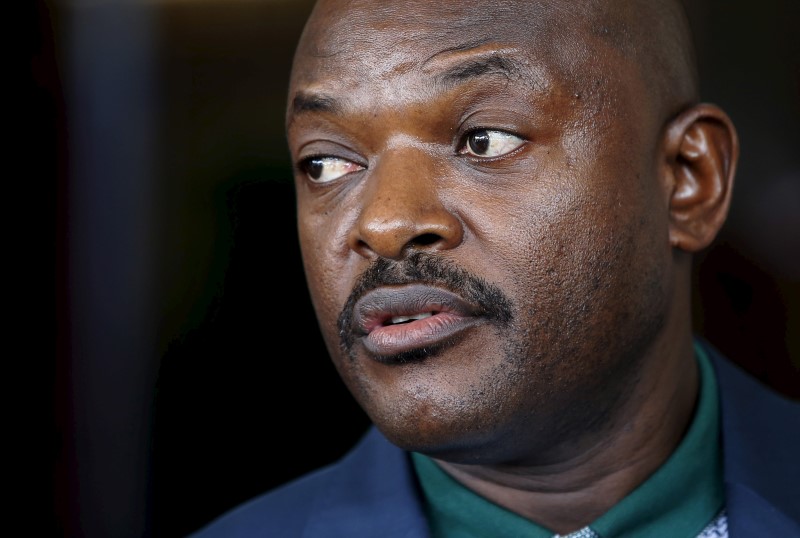By Robin Emmott
BRUSSELS (Reuters) - The European Union will impose sanctions on four officials close to Burundi's president Pierre Nkurunziza in protest at his third term in office that has provoked a deep political crisis, diplomatic sources said.
The travel bans and asset freezes on the four men were agreed by EU ambassadors last week and will be formally adopted on Thursday, likely taking effect on Friday, people familiar with the discussions said on condition of anonymity.
The measures are a response to Nkurunziza's disputed reelection in July in which he broke the two-term limit agreed a decade ago, plunging the Central African country into its worst crisis since its civil war ended in 2005. His opponents boycotted the election.
Nkurunziza will not be sanctioned to "keep open the channels of dialogue," one EU diplomat said, while one minister of the new government has also been struck off the EU's initial list for the same reason.
"Completely cutting off communication won't bring the political solution we seek," said one EU diplomat. A second diplomat confirmed the sanctions decision. EU foreign policy chief Federica Mogherini said in July the EU was preparing the sanctions "against those whose actions led to acts of violence, repression and serious human rights abuses."
Nkurunziza's former security chief General Adolphe Nshimirimana was also originally on the EU's list but he was ambushed and killed in August, a victim of the mounting violence that has followed the election.
The United States has imposed visa bans on some Burundian government officials, while the United Nations warned on Monday of an "alarming upsurge" in the number of killings and arbitrary arrests in Burundi.
The European Union, which funds about half the annual budget of Burundi, is also debating whether to suspend some trade preferences under the Cotonou Agreement signed in 2000, but countries are wary of harming the population.

The government says the election was fair and accuses the opposition of stoking tensions. Burundi says it wants good ties with donors but will not let them dictate policies.